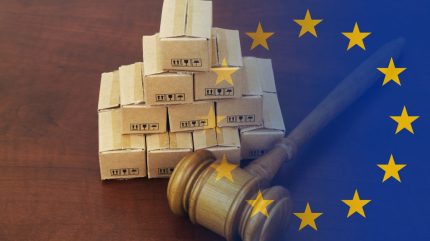
A group of 22 organisations spanning the European packaging value chain has jointly outlined specific recommendations for the European Commission’s proposed 28th legal regime.
The move aims to streamline European Union (EU) rules, enhance industrial competitiveness and support the region’s shift towards a circular economy.

Discover B2B Marketing That Performs
Combine business intelligence and editorial excellence to reach engaged professionals across 36 leading media platforms.
It was endorsed by organisation including EUROPEN (the European Organisation for Packaging and the Environment), AGMPM (the Association of the Greek Manufacturers of Packaging and Materials) and EPPA (the European Packaging Alliance).
In a collective statement, the signatories said that the European Commission’s proposed framework presents a chance to ease administrative pressures by aligning procedures and requirements across different EU legislations.
This is especially relevant for registration, authorisation and reporting duties within environmental regulation.
They argued that the advantages of such a regime should extend to all businesses operating in the EU, rather than being limited to start-ups and small or medium-sized enterprises.

US Tariffs are shifting - will you react or anticipate?
Don’t let policy changes catch you off guard. Stay proactive with real-time data and expert analysis.
By GlobalDataThe coalition highlighted persistent fragmentation in areas including cross-border waste transfers and the circulation of secondary raw materials as issues that a harmonised approach could help resolve.
The organisations recommended that the regime should make full use of mutual recognition to speed up cross-border administrative processes.
They also urged the adoption of a “digital-by-default” model, based on interoperable systems, and the creation of a digital one-stop-shop for fulfilling extended producer responsibility obligations.
The statement further pressed for consistent implementation of the “once-only” principle, whereby companies provide data only once, with authorities then responsible for securely sharing that information between Member States.
According to the coalition, a carefully designed 28th legal regime has the potential to become an important tool for dismantling remaining administrative obstacles in the Single Market, reinforcing the competitiveness of European industry and underpinning the EU’s circular economy goals.
EUROPEN Secretary General Francesca Stevens stated: “The 28th legal regime offers a real opportunity to remove barriers that still fragment the Single Market. With a harmonised framework, Europe can strengthen its competitiveness while accelerating the transition to a circular economy.”





